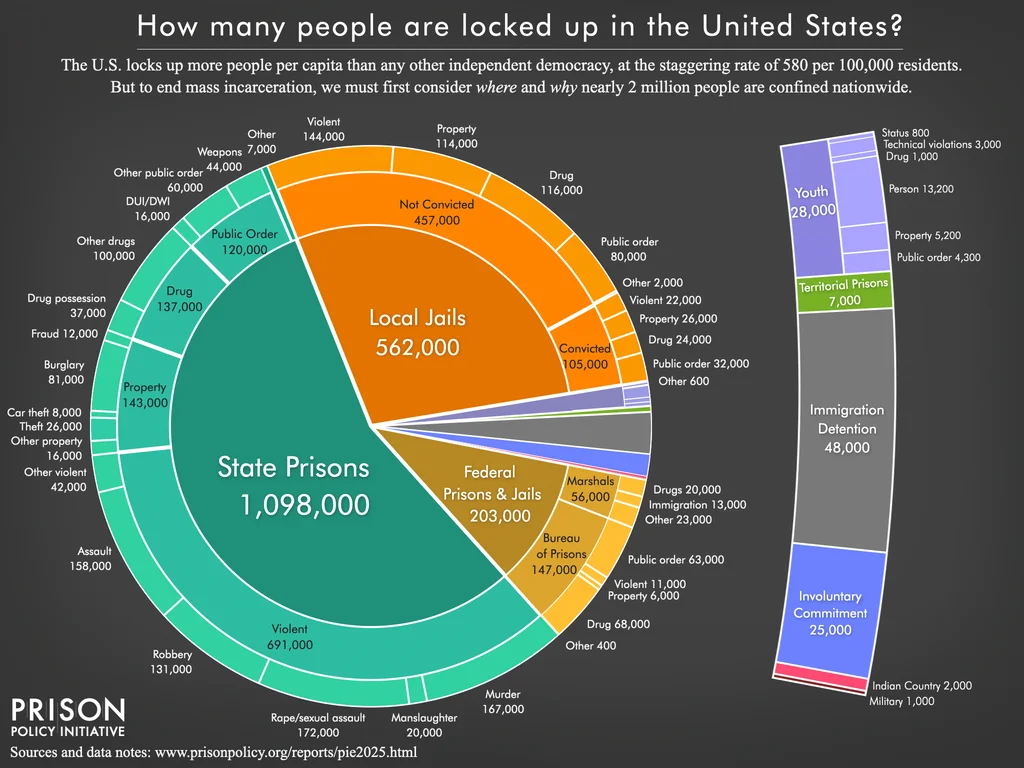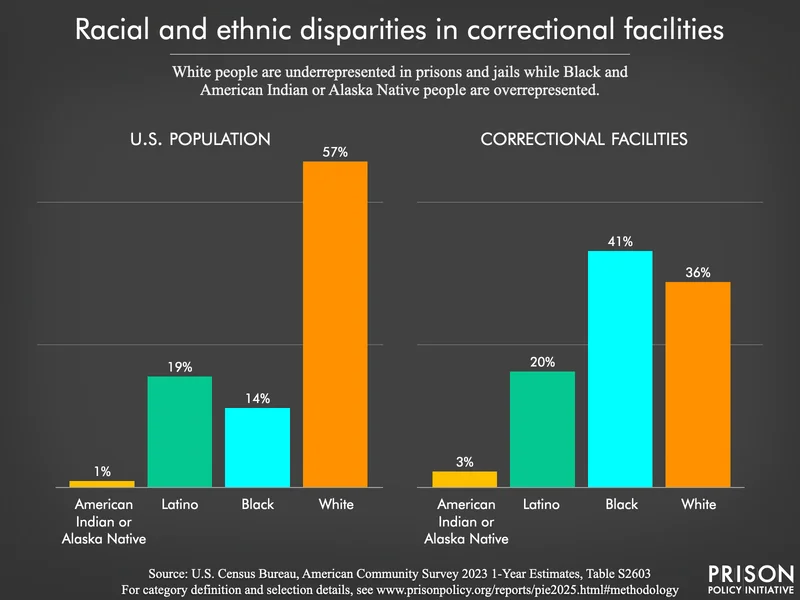7.12 Who Goes to Prison?
David Carter; Kate McLean; and Michelle Holcomb
The types of people that end up in prison are quite different from individuals that go to jail. Almost all people that go to prisons in the United States are people that have been convicted of felony-level crimes and will be serving more than a year.

Focusing in on the left side of the graphic, there are roughly 1,090,000 State Prisoners. More than half (62%) are incarcerated for violent crimes. Property crimes and drug crimes represent the 2nd and 3rd most common offenses for the state prisoners. This graphic also shows us how many more individuals are in state versus federal institutions, with “only” 203,000 individuals incarcerated in the latter group. You may also notice how drug offenders are represented at a much higher level in federal institutions – over 42% of all federal inmates (versus 12% of all state inmates.)
Roughly 93% of prison inmates – compared to jail inmates – are male. In jail, that percentage is roughly 82% male. Across all detention facilities, there are stark racial disparities as well, as shown in the graph below and discussed further in subsequent chapters.


